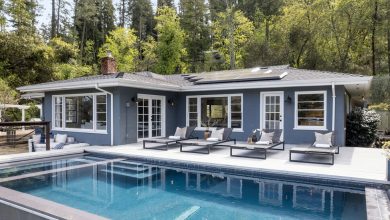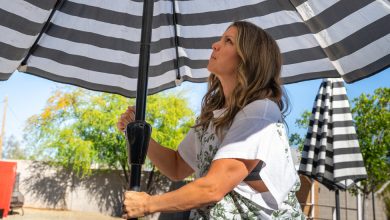‘Just Think Rome’: The Morgan Library & Museum Opens Garden to the Public

For the first time in its 116-year history, the Morgan Library & Museum in Midtown Manhattan has opened its garden to the public.
The library and gardens on East 36th Street began as a private library of J. Pierpont Morgan, the financier who founded the bank J.P. Morgan, to accompany his house, which is now home to the museum.
The six-year renovation project cost $13 million to complete. It was the first large-scale restoration of the library’s exterior distinguished by two marble lionesses that flank the library’s entrance and a previously inaccessible third-century Roman Sarcophagus purchased by Morgan around 1913.
A Museum Opens Its Garden to the Public
9 Photos
View Slide Show ›
The gardens, which opened to the public on June 18, will stay open to visitors through early October. Cultivating a space that feels more like Italy than New York City was a herculean task. Opening a space that feels cathartic in one of the most bustling blocks in this part of the city — a Starbucks sits steps from the entrance and a parking garage directly across the street — was the point, according to those who worked on the renovation.
These interviews have been lightly edited for clarity.
Colin B. Bailey, director of the Morgan Library & Museum
It’s not a very quiet garden. But already, people are going to be excited by how beautiful the building is. Just think Rome now — because you’re noisy, you’re gritty, you’re urban — but you are also walking around very monumental; classical. It’s going to be the first time in our history that people are going to be out in this space. My hope is that it would be like an additional exhibition.
I think we have a sort of sleeping beauty here. This street is busy and quite noisy. We’ve always maintained the building, but we’ve cleaned it now. And we’ve also added lighting just to give it much more presence. So, in a way, many people who walk around Midtown and Murray Hill, and many people who come to the Morgan, have not been able to get much closer than standing outside the fence. It’s adding something a little unusual in New York — feeling like you’re in Rome. You feel you’re in this small space with objects, flowers, plants, and a beautiful building with a lot of noise.
Jennifer Schork, project lead and partner and principal at Integrated Conservation Resources, Inc. and Integrated Conservation Contracting, Inc.
When we first approached [the building] in 2016, it was in relatively good condition, considering it had not undergone a large restoration. The conditions that were of the most concern for the Morgan were just extensive atmospheric soiling due to pollution — and that just aged the beautiful white stone. The restoration program was very comprehensive, so we don’t imagine extensive work will be needed for many decades.
All of the associated elements— the bronze fencing, the grills — everything was treated with this same philosophy of bringing it back to its original splendor, but with a light touch.
And that is a mind-set and a philosophy that I think comes from the Morgan and comes from them being such good stewards of the building and treating the building, the facade, the artifacts and associated sculptural elements as part of their art collection.
Jennifer Tonkovich, curator
Murray Hill is just apartment building-to-apartment building. There are almost no open spaces because they’re built to the full footprint.
Just even having this as a space, even if you don’t go in it and you walk past it — that feels welcoming, that feels finished— is a joy to behold. It is enriching the fabric of this neighborhood and this community, which has a really strong historic association. There are a lot of great buildings but really without much green space.
There’s no relief for the eye. The eye doesn’t have an opportunity to land on something refreshing and green. You can walk down here and drive past here, and just that little glimpse of this vivid green lawn and these plantings are going to be something that is refreshing and brings a lot to the neighborhood whether you’re a visitor who comes [to the museum], or you’re somebody who just walks by on your way to work, to walk your dog or just standing there waiting.
Todd Longstaffe-Gowan, Landscape Designer
The inspiration was that Mr. Morgan was unabashedly European, and he loved everything about Europe. He was very keen that European cultures were brought to America, so he brought huge quantities of decorative paintings and sculptures. I thought it’d be appropriate to try and make the garden very European and to make it something that invokes another world.
In the garden, I think we were looking for an expression in keeping with the building, which was a near-Renaissance building. Otherworldly. You want to create another sense that when you’re in the garden, you are sort of off the street. It’s hard to imagine when you’ve got so much noise behind us, but I think you are still capable of feeling in another space when you come into the garden. What’s the greatest pleasure is, for the first time, inviting the public in a limited manner into the gardens. It’s never, ever happened before.




